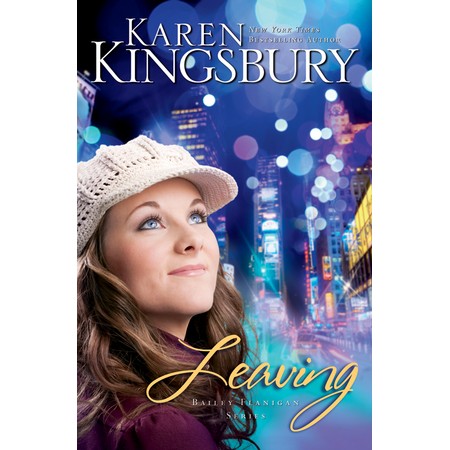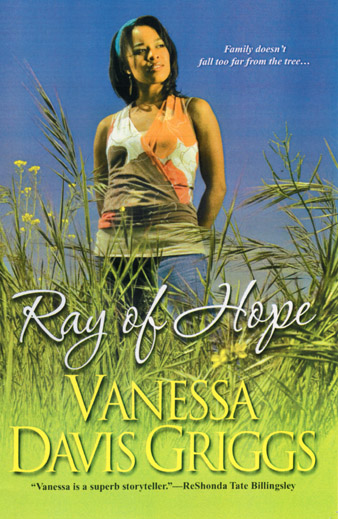My friend, publisher Jassai Madden of Lorraine and James Lit-journal introduced me to a writer whose newly published short story, "Blood of the Lamb," challenges our notion of what is faith fiction or Christian fiction. It goes beyond biblical literature, but steps outside of it and around it into something deeper--what is our relationship with God? More importantly, does our view of him evolve or change?
Note: This story is fiction. The purpose of this interview is to celebrate Christ through literature not to challenge or change his divinity.
An excerpt from "Blood of the Lamb"...
Note: This story is fiction. The purpose of this interview is to celebrate Christ through literature not to challenge or change his divinity.
An excerpt from "Blood of the Lamb"...
"So a woman comes into the world and feeds the multitude. What's so unusual about that? Women turn stones into bread every day! Women already heal the sick, and they do better than raise the dead--they bring forth new life! Women? They save the world every day! If the Messiah comes as a woman..." he[Ab] shakes his head. "What ridiculous redundancy!"
Dee: How did you come up with the idea for Blood of the Lamb from a Christmas sweatshirt?
Jess: Blood of the Lamb did have a bit of a bizarre inception. I was browsing through a Christmas catalogue several years ago when I noticed an ad for a sweatshirt. On the front of it was the outline of a stable and a manger flanked by Mary and Joseph. Overhead a star beamed brightly and wise men approached from the distance. The typical Christmas motif. But underneath was written this surprising caption - “It’s a girl!” And voila, the idea for a story was born.
Dee: Why did you choose its tone?
Jess:Ah yes, the tone of this piece is very dark, no doubt about that, and I think it stems from the anger - no, that’s too mild a word - the rage I’d carried with me for years. I came from a religious tradition in which women were not (and are not) permitted to serve as clergy in part because “they do not bear a natural resemblance to Christ in his maleness,” and I think that’s pretty close to a direct quote. When I first heard that, I felt as though someone had kicked me in the stomach. Only men can image Christ? Seriously?
I could not understand, (and still can’t), how anyone could hold to that notion in light of the gospels.
Was Christ’s table not open to all? Did he not include women among his closest followers and friends?...And besides, was Christ not more than just his “maleness?” Was he not also the epitome of compassion and forgiveness and self-sacrificing love?And can’t women be compassionate, forgiving and self-sacrificing?
Of course they can and are! But in my church, it wasn’t enough. The very fact that women were women made them incapable of imaging Christ, a man. That’s when I started to think, well OK, so what if Christ had come as a woman?
Dee: Give us a brief snippet of the story’s plot.
Jess: The premise of the story is that Mary of Nazareth was not God’s first choice to be mother of the Saviour. Rather, God’s choice had fallen on a woman named Ahabah (Hebrew for “Beloved”). Ahabah manages to convince the Almighty that the Messiah should be female. Tension mounts when Ahabah’s father learns she is pregnant with the Daughter of God.
Dee: What are the themes in this story?
Certainly the systemic devaluation of women as images and conduits of the Divine, especially in the Judeo-Christian faith, is an important theme in the story. But I also endeavoured to throw a spotlight on the traditional conceptualizations of God. Is God a “He?” How does our idea of God influence how we interpret the incarnation story? Just how literally should we take it?
Certainly the systemic devaluation of women as images and conduits of the Divine, especially in the Judeo-Christian faith, is an important theme in the story. But I also endeavoured to throw a spotlight on the traditional conceptualizations of God. Is God a “He?” How does our idea of God influence how we interpret the incarnation story? Just how literally should we take it?
Further, I wanted to explore the heartbreaking reality of how God’s love is invariably greeted by human violence.
Dee: How do you feel about the notion of ‘womanly mischief’ in religion? What does it represent in Blood of the Lamb?
A delightful question! Womanly mischief is found throughout the Bible, in both the Old and New Testaments. There’s Deborah marshalling her general Barak, Ruth and her mother-in-law conspiring together to ensnare Boaz, the Canaanite woman who ‘dogs’ the steps of Jesus and challenges him to expand his ministry to include the gentiles, and Mary of Bethany’s prophetic anointing of Jesus as the Christ, to name a few. Women of the Bible were always stirring things up, tweaking the system, and giving men a well-aimed elbow in the ribs when necessary, and although a concerted effort was made to suppress it, their womanly mischief runs like a bright ribbon throughout Sacred Scripture and historical tradition.
Em and Ahabah tease each other back and forth while Em knits a baby blanket and Ahabah tells the fantastic story of how she stood up to God to become pregnant with the female Messiah. I loved the images of knitting and storytelling, and how they speak to the strength of both these characters and their joint mischief-making - Ahabah as the crafty manipulator of God’s plan and Em as her loyal supporter and cheerleader.
Dee: What if Christ was a woman? Do you think the world would be different?
Jess: Oh my! If Christ had come as a woman, the world would be a very dark place indeed. I believe the inspirited message of God’s love, and the grace-filled hope and peace it imparts would never have been heard or recorded had it come from the lips of a woman. The self-sacrificing death of the female Christ would have been accounted as of no value; her resurrection dismissed as pure fantasy. Though I am probably the most rabid feminist you’re ever likely to encounter, I believe Christ had to come as a man if men (and by that I mean the male sex) were to have any hope at all of being saved.
Dee: Your writing is so beautiful and feminine. Outside of British lit, were there any other writers influencing your style?
Well thank you for the lovely compliment! I think there have been several writers who have influenced me. Gail Anderson-Dargatz is a Canadian writer whose work I greatly admire as well as Jane Urquhart and Margaret Laurence. Sue Monk Kidd and Rita Mae Brown continue to inspire and delight me. And lest you think I read only women, I can say with absolute certainty that the works of Elie Wiesel have profoundly affected my writing and changed my life.
Dee: Do you think that there should be a genre called ‘Christian fiction’ or ‘faith fiction? And if so, what defines it?
Jess: Hm. I think labelling a particular genre ‘faith fiction’ can be a bit problematic. Readers who don’t consider themselves particularly religious might well steer away from ‘faith fiction.’ Whereas if they encountered those same stories in a more mainline press, they might be greatly enriched by them. At least they would have the opportunity to be exposed to them.
On the other side of that coin, I cannot imagine Blood of the Lamb appearing in the pages of any explicitly religious journal. It’s far too controversial for that particular venue. But Lorraine and James(http://lorraineandjames.com) took a chance and courageously published and promoted it, and now here I am chatting with a Christian writer and reviewer! Amazing how things work out, don’t you agree?
Dee: Did you have to do research to create this story?
Jess: Heavens yes! A ton of it! And as well I was able to draw on my past theological studies and found that an invaluable resource. It was my privilege to have been taught by world-class Scripture professors who opened my mind to the treasure that is the Bible when I was reading it as though I were half asleep! They showed me how it is a living thing, taught me an appreciation for its time and context, and urged me to grapple with the ideas contained therein. I will always be grateful for what they did for me and for the unflagging encouragement they gave me to write.
Dee: Why didn’t an angel come back to tell Ahabah that she will not bear the Christ?
Jess: I didn’t think it was necessary for the angel to return to tell Ahabah she would not bear the Christ. Em makes it clear in her final conversation with her that God will choose another more compliant candidate for that job.
Dee: Do you think God changes his mind?
Jess: Oh goodness! What a loaded question! Like theologians haven’t been debating that one for centuries!
First of all, my story notwithstanding, I have a difficult time imaging God as a “He.” And I strive in as far as possible to remind myself that God is not a human being either. In other words, I’m not sure God has a mind to change! And if I sound like I’m ducking the question, well, I suppose I am, but hey, didn’t God say “My thoughts are not your thoughts, neither are your ways my ways”? I’ll let wiser scholars than me wrestle with this one.
Dee: What are you working on now and how can loyal readers find you?
Jess: Loyal readers?! Oh bless you for assuming I have some!
I am currently working on a collection of poetry - traditional nursery rhymes updated and retold for adults - as well as a full-length novel that is unfortunately still more idea and sketch notes than anything else right now. But if either of these projects ever see the light of day, how about I let you know and you can get the word out. Deal?
Jess Stuart
To read Jess' provocative short story, "Blood of the Lamb" visit Lorraine and James Global Urban Literature Journal at http://lorraineandjames.com or its blog at http://lorraineandjames.blogspot.com.
Thanks, Jess.
Dee
Powered By Qumana




















3 comments:
Yikes! Don't know where you're going with this, but it sounds like a head on collision with Scripture. And if you ask me to pray to, "Our Mother Who art in heaven..." I'm outta here.
:) Thanks, Mike. Heavens, no. There will be no Our mother's here. :)
Where am I going with this?
definitely not to go against scripture. in fact i stated that this story goes around scripture. what it does is stretch our imagination of God. Clearly this story isn't biblical, but it is thought-provoking. why wasn't Christ meant to be a woman? why does God have a son not a daughter? how important is woman to kingdom building? is it relevant?
if not, why aren't more women ministers?
this story houses many questions that some women, who are christian wonder about. can i, a woman, minister to the world? what am i here for?
it is also looks at this whole notion of "christian fiction" as a genre. Jess doesn't suggest that her story is christian or faith fiction. But are there not novels, that proclaim that they are Christian Fiction, but do not edify Christ or the church? Yet, because a pulpit is on the cover, a few people spout prayers, novice believers wouldn't know the difference?
Thanks for commenting. I agree, wholeheartedly with the "head on collision with scripture" statement you made. That is why I believe that as this genre widens and our christian worldviews become more inclusive there should be some parameters that go beyond profanity and sex. On the the same hand, if we claim to be seeking a larger worldview of God, these type works may began to slide into the genre without our liking. Things to consider.
I thank Jess for agreeing to share her story with me. Thank you, Mike for speaking up.
Honey, your mom is too real. I have to quote on her on that, so you have to send me her name. And if I get any pocket change from it, I'll give her her share. :)
What if Christ were woman?
You know the DaVinci Code is a blockbuster that is absolutely fiction. But people are losing it over it. I thought the book was great for its genre.
Jess writes wonderfully and Lorraine and James is awesome.
Post a Comment